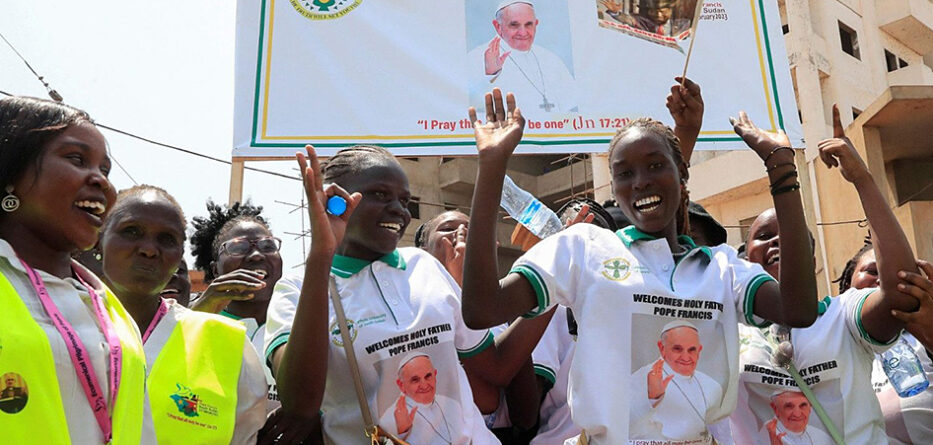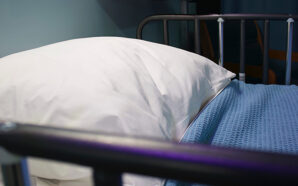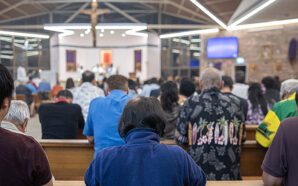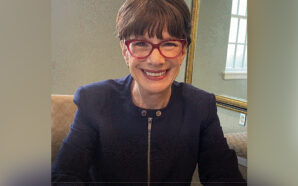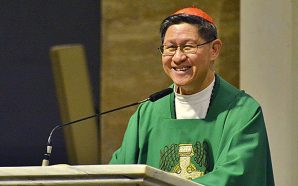During his weekend visit to the South Sudanese capital of Juba, Pope Francis will find Catholics who are trying to bring peace and stability to the world’s youngest nation
Posters of a smiling Pope Francis can be seen all over Juba. And all the main thoroughfares in the capital city of South Sudan, the world’s youngest nation, have been freshly repaved and the roadsides cleaned up to finally welcome the 86-year-old for a weekend visit that’s been long in the planning.
Francis’ arrival on Friday afternoon comes on the heels of his visit to the Democratic Republic of the Congo, which began last Tuesday. In South Sudan, which became an independent nation in 2011, he will find a poor, but resilient Catholic community trying to bring peace and social assistance to the country.
Sister Juan Susan Salvatory is an example. Far from the bustling center of Juba, in the outlying neighborhood of Jebel Timan, she is doing her accounts. She needs to raise 20,000 South Sudanese pounds (nearly 30 €) to take the 15 orphans she looks after to the papal Mass on Sunday. She says she’s relying on God to help her come up with such a large sum.
The Church’s financial resources are limited
This woman religious embodies the dilemmas of a predominantly Christian people, constantly held back by the limitations of the institution to which they belong. Since South Sudan’s independence just a dozen years ago, the Catholic Church has been the umbrella for one out of every two inhabitants, a bulwark but also a mirror of the suffering of its faithful.
“We haven’t had water for two days,” says sister Juan Susan.
When the donations are not enough to cover school fees, the teachers send the children back to the orphanage that “Mama” opened. Sometimes the kids cannot integrate into this more structured life and so they return to the streets. They are the indirect victims of the decades of war that ravaged South Sudan before independence.
Then there is the fratricidal conflict that has bloodied the fledgling state since 2013, and has continued despite the 2018 peace agreement, as evidenced by the murder of two Catholic religious sisters in August 2021. The northern city of Malakal was particularly affected. The two pastoral centers there, as well several churches and schools, are still waiting to be rebuilt.
“The poverty of the population reflects on the Church, which is entirely dependent on outside support,” says the local bishop, Stephen Nyodho Ador. “Even to feed the priests, we have to look for help internationally.”
“Our Church is not so poor in terms of faith, hope and charity”
On several occasions, the 50–year-old bishop has approached the Vatican or Catholic Relief Services. An actual native of the Malakal diocese, he says he’s never received a sufficient response.
“Despite their material poverty, our faithful are rich spiritually. Their faith in God allows them to continue to move forward,” he emphasizes.
Archbishop. Stephen Ameyu Martin Mulla of Juba, agrees.
“Our Church is not so poor in terms of faith, hope and charity,” says the 59-year-old archbishop. “On the other hand, we remain weak on the issue of social cohesion because of the war, the persistent political tensions and the generations that have grown up in exile in neighboring countries, soaking up these different cultures,” he points out.
Archbishop Ameyu, who has been leading the Church in Juba since 2019, welcomes the gradual emergence of a South Sudanese identity.
The Church’s work in the areas of peace, justice and education
The hierarchical structure of the Catholic Church and its link to the Vatican have put the South Sudanese Catholics at the forefront of the peace talks. The Church here, which consists of seven dioceses, also has its own peace and justice commission. Its head, Father Martin Ochaya, has launched a number of programs. They include combating poachers in the vast forests that cover the territory, feeding the poor with unsold food, and curbing rampant violence against women.
“Our politicians have broken the social contract with their people. So we have to take the place of the government,” the priest says. “South Sudan is not poor! We have ample resources, but they don’t reach the people. When our politicians are united, they steal from us and when they are divided, they kill us,” the peace and justice officer complains.
Opposite Father Ochaya’s church, the largest parish in Juba, a dispensary treats the most common infections, including malaria. There, the Sisters of the Sacred Heart of Jesus have opened a school in the midst of a neighborhood that previously had no affordable schools. But the temporary funding from UNICEF has not allowed them to fence off the playground.
“As a result, the classrooms are squatted by homeless people,” says Keloy Bosco, one of the teachers. She points out that some children started their schooling late and struggle to understand the lessons taught in English. There is also the looming threat of early marriages.
The papal visit and hopes for peace
The Church’s efforts in the education sector are not enough to make up for the state’s shortcomings, between poorly qualified teachers and interruptions during the school year due to sporadic conflicts.
“We dream of taking our students to a certain level. But their poor initial training and the limited resources we have do not allow us to meet these expectations,” says Father Baptist Karim, rector of South Sudan’s national seminary. But he says he’s pleased that there is no vocation crisis. Usually ten or so priests and deacons are ordained each year.
Nyayo Rejoice, 22, is grateful for receiving a free education at the Jesuit high school in Wau, the country’s second largest city. Raised by her grandmother after being rejected by her father, she is now studying law on a scholarship from a Catholic organization. She is a member of a parish youth group that collects clothing for street children and funds to support hospital patients.
“We only manage to help a few and leave the others behind,” says the devout Catholic. “It’s normal for us to do our part, but we need better planning from the top of the Church. Every time we submit a project, we are told that there are not enough resources,” she explains.
Faida Mary shares her frustration. The 24-year-old accountant co-founded the Catholic organization Caring Hearts Initiative for Community Development in the Ugandan refugee camp where she grew up. Along with nine other activists, she is actively involved with Mama’s orphanage.
“The Church hardly contributes at all,” she observes. “Its accompaniment can be spiritual, but when it comes to the material level, it does not help,” she says.
These marginalized Catholics hope that Pope Francis will convince their leaders to finally bring about a lasting peace. Meanwhile, the giant posters that have been plastered all over Juba quote from the Gospel of John: “I pray that all may be one.”
Reproduced with permission from La Croix Internationai.




